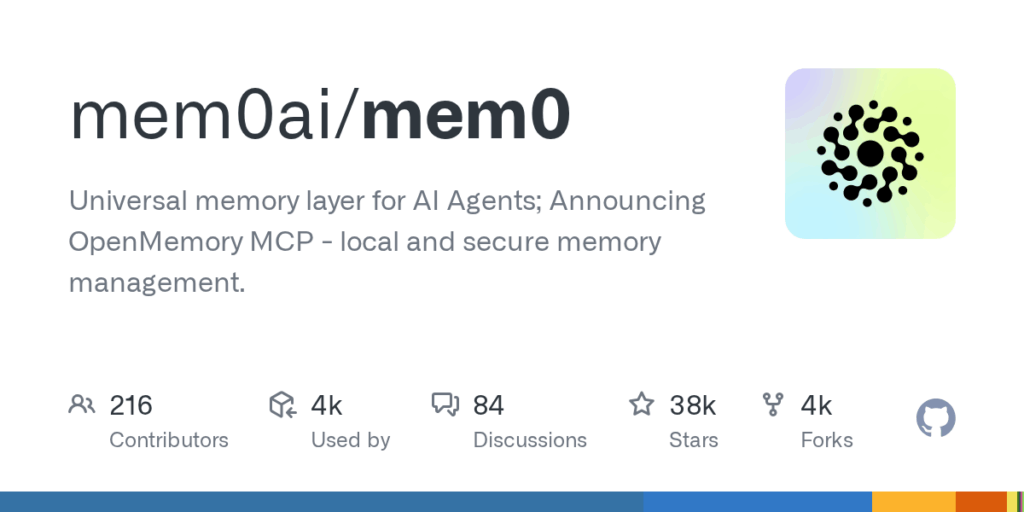mem0
Basic Information
Mem0 provides a modular memory layer designed to be embedded into AI assistants and autonomous agents to enable long-term, personalized interactions. The repository supplies SDKs, APIs, and a managed platform as well as a self-hosted option so developers can persist and retrieve user, session, and agent state over time. Its primary purpose is to deliver a production-ready memory infrastructure that reduces token costs and latency while improving response accuracy, and to support use cases such as personalized chatbots, customer support systems, healthcare assistants, and adaptive gaming or productivity environments. The project includes research-backed performance claims, a reference implementation, installation packages for Python and JavaScript, and integrations and demos to help teams add context-aware memory to their LLM-powered applications.








